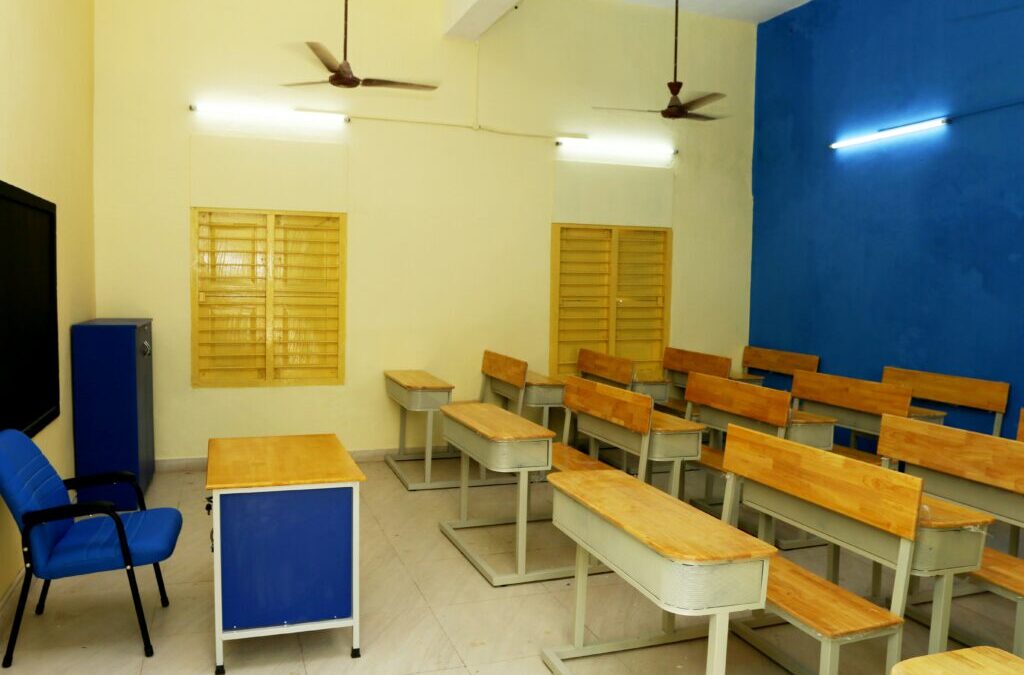Maine’s public schools require $11 billion to renovate, replace and modernize school facilities, a new report finds.
The state-led Commission on School Construction has released an interim summary of the new and existing needs of Maine’s public schools, facilities and students. Providing an update to the commission’s research over the last year, the summary outlines the state’s urgent need for funding to repair and replace 500 public schools by 2045.
The Commission on School Construction was established under executive order by Gov. Janet Mills to review the system of school construction in Maine, including renovation, modernization and funding. The executive order directed the commission to identify problems within this system and present final recommendations and strategies to address these problems.
The $11 billion price tag—“a conservation estimate”—encompasses an existing backlog of capital improvement and major renovation projects at all Maine public schools. As the first full study into school construction in over 20 years, the commission’s estimation reflects the rising costs of construction materials, labor and related processes.
As this backlog persists, most of Maine’s roughly 600 schools are expected to need major upgrades or replacement by 2045. Averaging over 50 years old, the state’s public school facilities will continue to burden prospective education funding until solutions are implemented.
The current funding structure for school construction in Maine is both limited and unpredictable. The summary evaluates the current funding for Maine schools, which includes a combination of local and state contributors.
Currently, Maine has no statewide tax or revenue source specifically dedicated to public schools. If schools’ projects are excluded from the Legislature’s top priorities, districts often require the issuance of bonds and loans to fund capital improvement projects.
School districts can also utilize local tax revenues to fund the needs of facilities, but tend to finance larger construction projects with debt service that need to be paid back over time.
Among the list of working recommendations, the commission will explore several solutions over the next few months, including prototyping school designs, evaluating cost-share models and establishing a state-level office for school construction, planning and support.
While reflecting the necessity of funding for public schools, the study shows several opportunities to collaborate with municipalities, districts and public-private partnerships (P3s) to enhance school facilities and ensure better access to education for Maine residents.
P3s, which can be used to supplement municipal funding for capital improvement or infrastructure projects, and philanthropic support represent viable opportunities for districts to get construction and repairs done, according to the summary.
Some other strategies included in the commission’s summary are listed below:
- Pursue additional funding strategically for major projects, renovation, maintenance and efficiency measures.
- Diversify funding streams through the general fund, local taxes, investment income, grants and other contributions.
- Rework the School Revolving Renovation Fund to consider additional funding for school facilities.
- Expand maintenance efforts to prevent a backlog of larger projects.
- Encourage consolidation and collaboration with state-funded resources.
The school commission is anticipated to announce final recommendations for lawmakers to consider in budget making and capital improvement processes. Initially slated for release by mid-April, these final recommendations are now expected before the end of the year.
The commission will continue to accept public input from municipal leaders, legislators, construction experts and building contractors throughout this collaborative policy-guiding process. Officials will encourage stakeholders to present additional strategies that ensure capital improvements, maintenance and modernization initiatives are funded at Maine schools.
Photo Courtesy
Haseeb Modi via Unsplash

